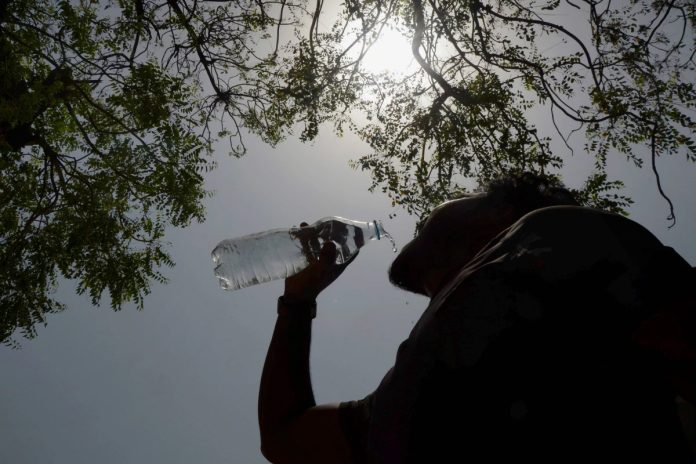New Delhi: Large parts of North India are experiencing extreme heatwave conditions, with temperatures exceeding 45 degrees Celsius in many areas. On May 21, Haryana’s Sirsa recorded the highest temperature at 47.8 degrees, followed by Rajasthan’s Pilani at 47.2 degrees and Punjab’s Bhatinda at 46.6 degrees.
Other cities making it to the top ten hottest include Uttar Pradesh’s Agra at 46.6 degrees, Madhya Pradesh’s Ratlam at 45.6 degrees, Gujarat’s Surendranagar at 45.4 degrees, Maharashtra’s Akola at 44.0 degrees, Chhattisgarh’s Durg at 43.6 degrees, Himachal Pradesh’s Una at 42.4 degrees, and Odisha’s Nuapada at 42.2 degrees.
Observed Maximum Temperature Dated 21.05.2024 #maximumtemperature #weatherupdate@moesgoi @DDNewslive @ndmaindia @airnewsalerts pic.twitter.com/xlbfFMYt9H
— India Meteorological Department (@Indiametdept) May 21, 2024
The national capital, Delhi, experienced soaring temperatures, prompting the Indian Meteorological Department (IMD) to issue a red alert for the next five days, effective until May 23, for Delhi and its neighboring states. In response, the Directorate of Education in Delhi mandated summer vacations for all schools from May 11 to June 30 due to the severe heatwave conditions.
The IMD expressed concern for vulnerable groups, including infants, the elderly, and those with chronic illnesses, advising the public to avoid heat exposure and dehydration. They recommended drinking plenty of water and consuming ORS, lassi, lemon water, and buttermilk to stay hydrated.
Tips to Stay Safe in Heatwave Conditions
Dr. Mohan Kumar Singh, Senior Consultant of Internal Medicine at Marengo Asia Hospital, Gurugram, warned that extreme temperatures and heatwaves could cause exhaustion, heatstroke, and dehydration. Excessive sweating depletes the body of fluids and electrolytes, causing dehydration and disrupting the body’s ability to regulate temperature. This can lead to symptoms such as headaches, nausea, weakness, and dizziness, potentially escalating to heat exhaustion or life-threatening heatstroke if not addressed.
Dr. Singh advised avoiding sun exposure, staying hydrated, wearing light clothing, and using coolers or air conditioners to mitigate health risks associated with extreme heat.

